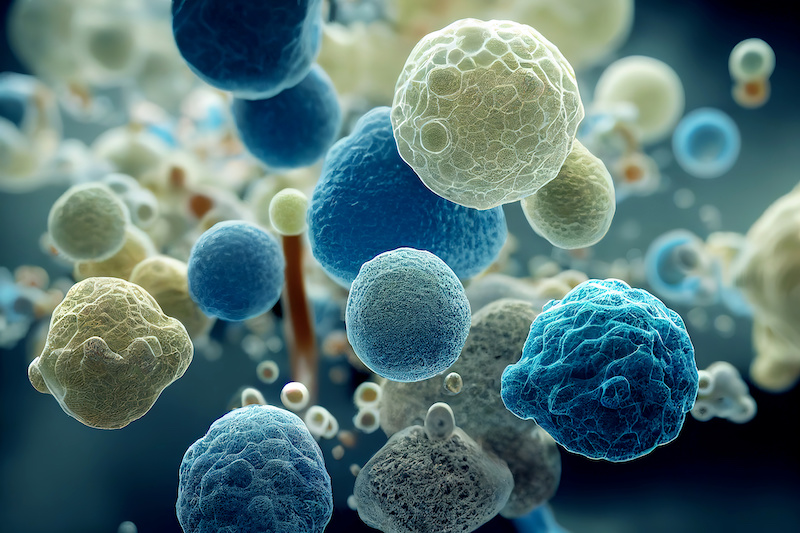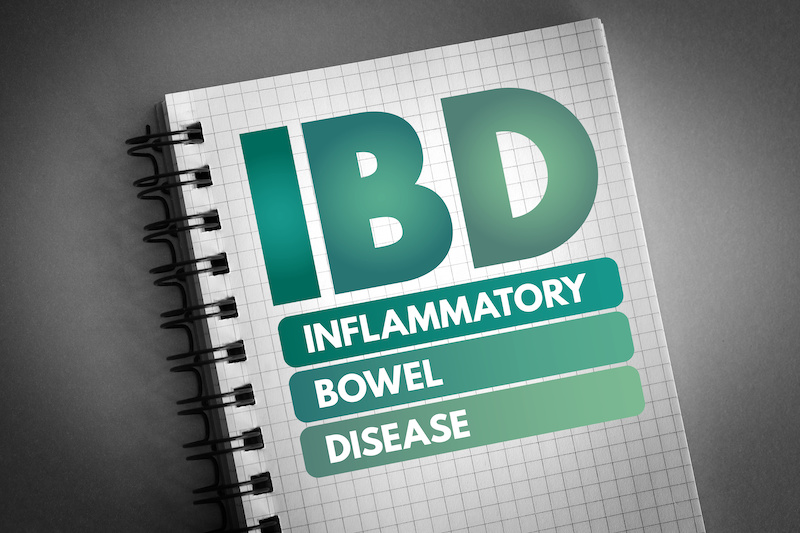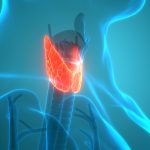This blog has been written as additional education for those IBD sufferers amongst you. Digestive disorders including inflammatory bowel disease are common for me to treat in my naturopathic clinic in Sydney. A week doesn’t go by without supporting people with this chronic condition and it can be one of the most challenging to treat.
What is IBD?
Inflammatory Bowel Disease (IBD) is a general term used for a number of similar conditions that affect the gastrointestinal tract, including ulcerative colitis (UC) and Crohn’s disease. In IBD, recurrent inflammation of sections of the gastrointestinal tract leads to tissue damage and the development of painful lesions. IBD is believed to be a consequence of your body’s inappropriate inflammatory response to intestinal microbes (bacteria and other species that colonise the gastrointestinal tract) when an individual is genetically susceptible. All layers of the intestine can be inflamed.
In Crohn’s disease the ileum which is the final section of the small intestine, and the colon (large intestine) are typically involved however it can involve any part of the gastrointestinal tract. Ulcerative colitis, on the other hand, involves the colon only. Signs and symptoms of IBD especially in a flare include diarrhoea and urgency, bleeding, weight loss, low appetite, nausea, vomiting, abdominal pain, and even fever. Ulcerative colitis can sometimes also present with constipation.

Other health outcomes related to IBD
Complications and conditions that may arise as a consequence of having IBD may include:
- Joint stiffness and eye inflammation
- Kidney and gallstones
- Fatty Liver
- Osteoporosis
- IBS: even in remission, IBD sufferers can experience IBS (Irritable Bowel Symptoms) as part of daily life such as constipation, diarrhoea, bloating, abdominal pain or discomfort and excess flatulence.
- Small intestinal Bacterial Overgrowth (SIBO) and malabsorption issues of lactose and fructose specifically in Crohn’s Disease
- Nutrient deficiencies: magnesium, iron, zinc, B Vitamins, Calcium and more
Risk Factors of IBD
An interesting fact is that the incidence of this autoimmune disease is rare in developing countries meaning that our western diet and lifestyle has an obvious connection with IBD.
Although it’s not clear exactly why IBD develops in some people, there are several factors that are associated with an increased risk of developing IBD:
- Family history: family history of the disease, especially if someone in their immediate family has IBD, so genetics definitely plays a role. In Crohn’s disease as an example first degree relatives have a 12- 15 times greater risk of developing this condition.
- Antibiotic use: including exposure in early childhood and recent use. This leads to Dysbiosis: People with IBD often have far less diversity in the types of microbes found in their guts. This can affect immune function and increase inflammation.
- Birth by caesarean
- Low levels of mucin: Mucin is the mucous substance secreted by cells in the gastrointestinal tract that helps protect your gut lining from bacteria, food particles, and toxins. In IBD, inflammation and antibodies from a dysregulated immune system destroys the mucin, leaving your gut lining susceptible to damage.
- Past gastrointestinal Infection: It’s believed infection (especially when hospitalized) can trigger the onset of IBD.
- Low Vitamin D levels: most likely due to important role in immune health
- Smoking: cigarette smoking increases the risk of developing IBD, particularly Crohn’s disease.
- Appendectomy: Having your appendix removed also increases your risk of developing IBD
- Stress, Anxiety: exacerbates the risk of relapse and flares
- NSAID use (Nonsteroidal anti-inflammatory drugs): increases the risk of relapse flares
Dietary Risk Factors in IBD
- A diet that is high in refined sugar, animal meat & fats, dairy products & high total protein intake
- Low intake of raw fruit and vegetables, wholegrains, and fish
- Low consumption of fibre rich foods
- Formula feeding in early childhood
Naturopathic treatment approaches aim to address the underlying causes of the condition. Whilst some of the above causes (such as family history) can’t be addressed, the strategies in this blog look at addressing some of the other causes, such as diet, restoring healthy gut bacteria species, balancing immune dysregulation, and chronic inflammation, to help you manage your symptoms and improve your daily wellbeing.
Tests that may be required
You are most likely to have been diagnosed by a gastroenterologist via a range of tests that include stool tests to rule out infection as the cause of your symptoms, a colonoscopy, endoscopy, Barium x-ray of your bowel, and CT scans.
As a naturopath, I may also recommend an assessment of the following however it is unique to each individual:
- faecal calprotectin and other inflammatory markers
- Blood tests to assess nutrient absorption issues
- Assessment of bacterial overgrowth
Naturopathic Treatment Objectives
The main focus is on healing the lining of the intestinal tract to reduce disease flares and remission.
Dietary Interventions
This may be done in phases depending on whether you have been diagnosed with bowel motility issues, bacterial overgrowth, or obvious malabsorption issues.
I have specific dietary recommendation for IBD sufferers once I have important information however at some stage in my client’s treatment, suggestions may include the following but will be unique to each individual:
Eliminate or reduce alcohol: it is unknown if alcohol plays a role in triggering disease flares however it is related to worsening pain in some patients.
Lactose free & low Fructose diet: this may be required especially in Crohn’s Disease due to malabsorption of lactose and fructose in some sufferers. Symptoms of ongoing IBS can be improved.
Low FODMAP diet: may be recommended: depending on bacterial overgrowth status and bowel motility for a period of time.
Increase your intake of fibre and certain prebiotic foods
It is important not to self-prescribe with prebiotic supplements as gas produced may worsen symptoms.
Increase your intake of antioxidants
Antioxidants are important compounds that help to fight oxidative stress in the body. Oxidative stress is a major contributor of chronic inflammation and tissue damage and can trigger immune activation, too. Antioxidants in foods are particularly abundant in fresh fruits, vegetables, herbs, and spices. Fruits and vegetables are also incredibly important sources of vitamins and minerals which are needed for cellular repair and healthy immune function, including vitamins such as A, C, and E, and minerals such as zinc and selenium, which also act as antioxidants in the body.
- Choose fruits and vegetables in a variety of colours each day to maximise the different types of antioxidants you are consuming – many of the antioxidants in fruits and vegetables are what gives the food its pigment.
- Red fruits and vegetables – contain compounds such as lycopene and anthocyanins: Tomatoes, capsicum, strawberries, cherries, beetroot, radish, chillis, radicchio, rhubarb, raspberries, cranberries, raspberriesOrange fruits and vegetables contain compounds such as beta-carotene: Oranges, capsicum, pumpkin, apricots, carrots, papaya, persimmons, mangoes, sweet potatoesYellow and light green fruits and vegetables contain compounds such as carotenoids: Capsicum, kiwi fruit, corn, pineapple, lemons, cabbage, celery, limes, pears, avocado, fennel, onion, lettuceDark green fruits and leafy vegetables contain compounds such as lutein chlorophyll and zeaxanthin: Broccoli, Brussels sprouts, kale, Pak choy, spinach, silver beet, asparagus, green beans, peas, leeks, artichokes
- Purple fruits and vegetables contain compounds such as anthocyanins and phenols: Cabbage, grapes, eggplant, onions, plums, blueberries, blackberries
- Use fresh herbs and spices to flavour your cooked foods, or even mix into salads.
Ensure Adequate Protein
Protein is vital for tissue repair and healing however excess animal protein and fats can be detrimental. For this reason, it is important to carefully develop a diet that has adequate proteins from a range of sources. Here is a wonderful blog about plant-based protein options.
Reduce Consumption of Inflammatory Foods
As IBD is an inflammatory condition, it’s important to reduce foods that can trigger or worsen inflammation. The foods listed below should be reduced or eliminated from your diet, as they can increase inflammation.
- High sugar foods: sugar, maple syrup, rice malt syrup, cakes, pastries, cookies, chocolate, lollies. Be wary of processed “healthy” treats such as protein balls, protein bars, muesli, and the like. Many of them still contain very high amounts of sugar.
- Trans fatty acids: found in frozen chips, frozen pizza, pastries, fried foods
- Highly refined carbohydrates: white bread, white rice. Instead, choose whole grain and sourdough varieties (proper sourdough, not the type in plastic in the supermarket)
- NOTE: If you only tolerate white bread and rice, this is okay, but be conscious not to over consume, and choose lower GI, good quality sources). Alternatively, swap some portions of these foods for other carbohydrate sources, such as potato, sweet potato, pumpkin, carrot, and other root vegetables, or even grains such as oats of quinoa.
- Food intolerances: if you have an intolerance to a particular food, it needs to be eliminated completely from your diet. Be sure to read food labels carefully to prevent accidental exposure.
Ensure Adequate Hydration
Adequate hydration is essential, especially when you are experiencing diarrhoea. Without sufficient water, our cells can’t be plump and healthy and aren’t able to function as they need to.
- If you are struggling to motivate yourself to drink enough water, try adding some flavour with sliced lemon or fresh mint leaves. You can even make your own cold brew iced tea by adding a couple of teaspoons of loose herbal tea into a bottle of water and leaving in the fridge overnight. Try making this with nettle leaf tea, which is an excellent source of vitamins and minerals.
- If you are experiencing diarrhoea, you can also try drinking coconut water, which will help you to replace some of your electrolytes as well as rehydrating you. This is a particularly good option if you are not able to eat sufficient food.
Increase your consumption of omega 3 fatty acids
Omega 3 fatty acids are a powerhouse nutrient for reducing inflammation and for helping build healthy cell walls.
- Fish: choose wild caught salmon or tuna, or sardines. Whilst eating the whole food is best, if you are unable to eat fish, you can use a supplement. Keep in mind that many fish oil supplements on the market are of poor quality and may not be providing you with benefit. Fish oil supplements should not smell rancid! It is best to use the fish oil prescribed to you, to ensure you are getting the most out of taking it.
- Vegan options: Omega 3 fatty acids are found in hemp seeds, walnuts, sunflower seeds, chia seeds, and ground flax seeds, and edamame. Vegan omega 3 supplements are also available and are usually algae-based.
During Acute Symptoms
During an acute attack of symptoms, you may need to eat a very simple diet of easily digestible foods – think well cooked stews and soft vegetables with chicken or fish. Some people may require the Low FODMAP diet during acute disease flares depending on their unique disease state.
Lifestyle Interventions
I spend considerable time supporting my clients in this area however some common interventions include
Reduce stress
Stress can worsen inflammation and has been shown to worsen symptoms in IBD. Address causes of stress in your life and seek ways to minimise the stress you deal with on a daily basis – delegate tasks where necessary and prioritise!
- If you don’t already have a regular counsellor or psychologist, look into finding one. Having someone to talk to about the stresses in your life can help you to work through issues and find positive, constructive ways to work through them. I have some excellent mental health practitioners in my clinic (link here Courtney)
- Daily meditation and yoga have both been found to be effective methods for reducing stress. Sign up for a local yoga or meditation class or try out “Yoga with Adrienne” on YouTube, and the “Insight Timer” app available through your device’s app store.
- Self-care with a relaxing massage, weekends away, a walk in nature will all support the impacts that stress and emotions have on IBD.
Make time for rest each day
Whilst exercise and physical activity is important, rest is equally so, especially during acute flares. Your body is working hard to heal and needs the time and space to concentrate on doing so! Avoid excessive caffeine consumption and ensure no caffeine is consumed after 12pm. Caffeine has a long half-life of 12 hours, so shouldn’t be consumed too late in the day as this will affect your ability to unwind and sleep.
Make sleep a priority
Sleep is so important for reducing day-time anxiety and stress, but it also supports a healthy and balanced immune system. If you are not sleeping well, you will be provided with additional naturopathic support on how to improve it and you may be prescribed some herbs to help you. My previous blog article on sleep gives important tips on why sleep is so important.

Herbs and Supplements
Supplements will only be prescribed based on symptoms and blood test results and may include Vitamin D, Zinc, iron.
Prebiotics: specific prebiotic fibres depending on whether you have Ulcerative Colitis or Crohn’s disease may be prescribed to improve your gut microflora and balance your stools.
Specific strains of Probiotics: broad spectrum probiotics are rarely prescribed especially in a bacterial overgrowth. Specific strains that perform unique functions are better indicated.
Anti-inflammatory herbs: may include bioavailable turmeric, Boswellia, Wormwood in acute and maintenance dosing.
Omega 3 oils: depending on fish consumption in diet
Whether you suffer from Ulcerative colitis or Crohn’s disease, many treatment strategies are similar however there are significant differences especially if Crohn’s is in the Ileum as opposed to the colon.
For support on managing this chronic condition and to reduce flares and quality of life, please book an initial naturopathic consultation with me or book a fact-finding call. My passion as a naturopath for digestive issues has meant significant study and research combined with specialist mentoring. My email address is [email protected] or call the clinic on (02) 8004 5521.
References
Hechtmann, L. (2014). Clinical Naturopathic Medicine. Chatswood: Elsevier Australia.










